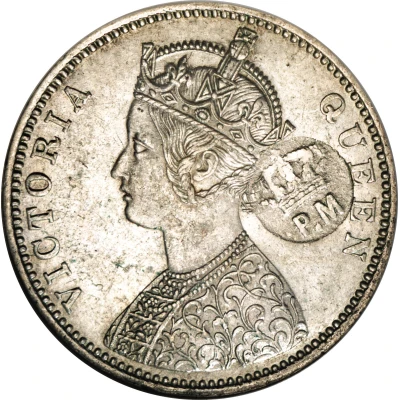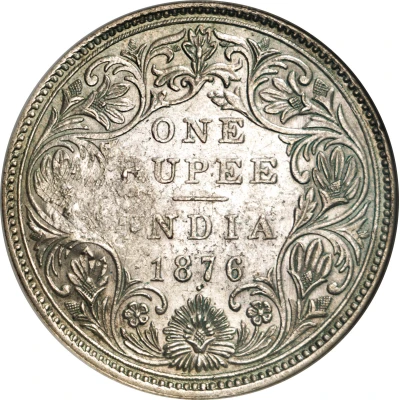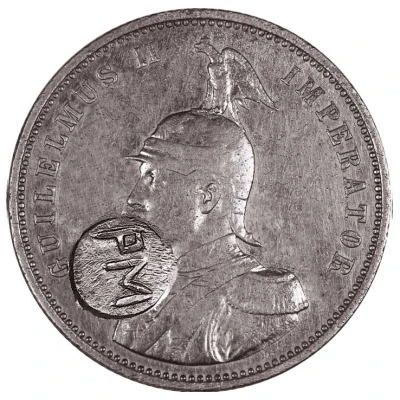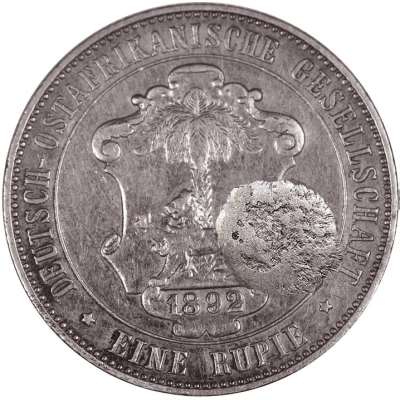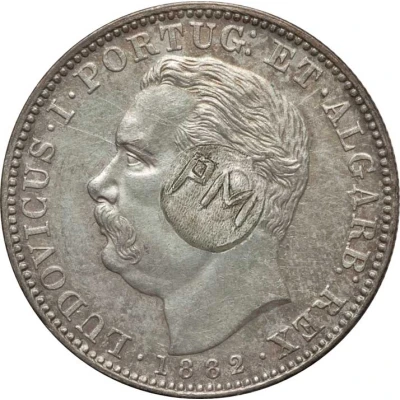
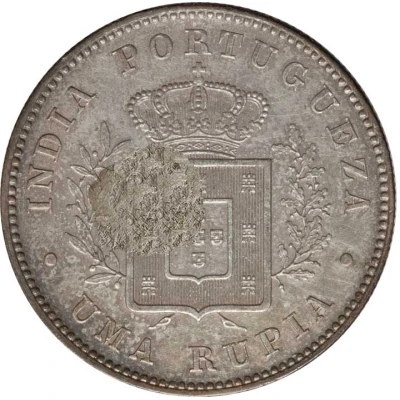

450 Réis Countermark "Crowned P.M" over 1 Rupee/India,Pt ND
| Silver (.9166) | 11.66 g | 30.05 mm |
| Issuer | Mozambique |
|---|---|
| King | Charles I the Diplomat (1889-1908) |
| Type | Standard circulation coin |
| Years | 1889-1895 |
| Value | 450 Réis |
| Currency | Real (1706-1910) |
| Composition | Silver (.9166) |
| Weight | 11.66 g |
| Diameter | 30.05 mm |
| Thickness | 1.8 mm |
| Shape | Round |
| Technique | Countermarked |
| Demonetized | Yes |
| Updated | 2024-10-06 |
| Numista | N#99115 |
|---|---|
| Rarity index | 94% |
Reverse
Script: Latin
Comment
According to reports from the colony's government, the value varied from place to place (380 to 450 Réis) and this caused disruption in trade. Even the Banco Nacional Ultramarino notes were subject to a premium.The countermark "Crowned PM" was instituted by the "NOTICE FROM THE BOARD OF FAZENDA of 05JAN1889".
A box with 40 punches, small anvils and hammers was sent from the Lisbon Mint.
Due to heavy use they quickly became inoperable.
Given the urgency, they were replaced by the stamp "PM" as there were no engravers in the colony that could do a better job (NOTICE FROM THE BOARD OF FAZENDA of 19JAN1889).
The stamp continued to be used under King Carlos and, traditionally, Portuguese catalogs "arrange" coins with this stamp during the reign of this last king.
Due to its crude manufacture, it was largely counterfeited at the time, and its counterfeiting continues today.
Interesting fact
One interesting fact about this coin is that it was issued during a time of great change in Mozambique. The coin was minted during the period of Portuguese colonial rule, which lasted from 1889 to 1895. During this time, Mozambique was undergoing significant economic and political changes, including the expansion of trade and the establishment of new colonial administrations. The coin's countermark, which features a crowned "P.M" over the Indian rupee symbol, reflects the influence of Portuguese colonial rule and the use of Indian currency in Mozambique during this period.
